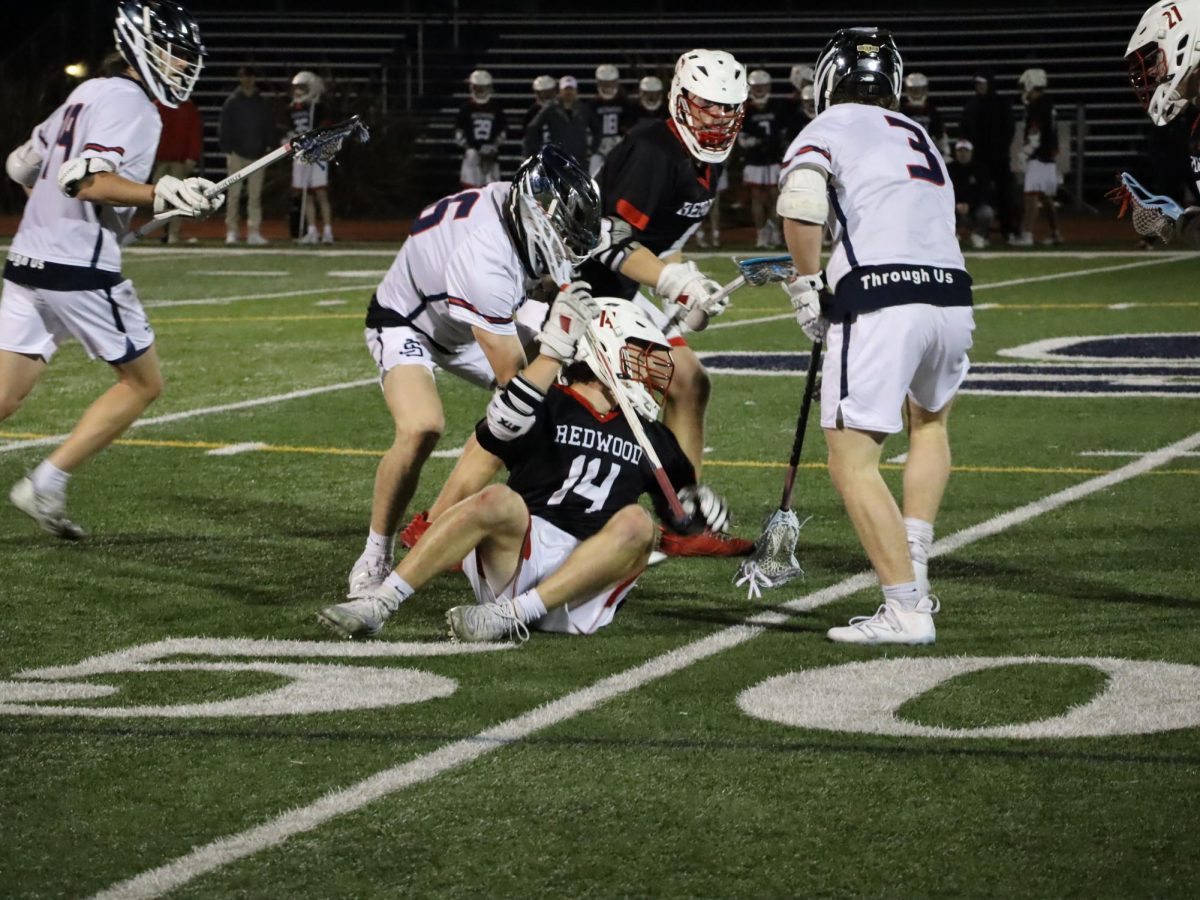According to the National College Athlete Association (NCAA), less than 1.6 percent of students play Division One sports in college. Despite the perk of knowing what school you’ll be attending earlier than most, the process of trying to get committed to play in college can put immense pressure on student-athletes.
Junior Stella Belluomini is among the small percentage of people who have committed to the University of Houston for softball. Belluomini, a pitcher, feels pressured by recruitment.
“It’s a lot of pressure when you see [the scouts] because they sit right behind the batter’s box. You can see them [while you are playing],” Belluomini said.
Senior Hanna Smith committed to the University of California—Irvine just earlier this year for volleyball. Smith is a middle hitter for the girls’ varsity volleyball team and has felt continuous stress throughout the process.
“When scouts are watching, it can be stressful. It’s about understanding that if they’re there to see you, they’re gonna come back, even if you’re not doing well,” Smith said.

Senior Semetri Carr, a University of California-Berkeley (Cal) commit and starting point guard for the men’s varsity basketball team, has faced similar concerns regarding the spotlight placed on him during the recruiting process.
“Near the end [of the process], it was pretty stressful because with 20-plus offers, visits [are] constant [and there are lots] of interviews,” Carr said.
Having a similar experience, Belluomini describes her stress during the week before being able to commit and the pressure she felt when colleges reached out.
“It was stressful [thinking] am I [going to] get a call on September first?[There] was a lot of anticipation,” Belluomini said.
When committing, athletes have felt that a lot of time must be allocated outside of practice, which can be a difficult task while balancing school and social life.
“At times, it would feel heavy on basketball and you want to [take a] break. At the end of the day, you signed up for it. Knowing where I am now, I sacrificed, but it’s a sacrifice that’s worth it in return,” Carr said.
When you commit, your feelings of stress can be lifted and feelings of relief often set in, as is the case with Smith.

“I’m really happy because my process had a lot of rejection and frustration. It’s competitive, [there’s only] one spot for my position on each college team and there are thousands of people vying for the same [opportunity],” Smith said.
This thought was echoed by Carr, who kept a similar notion in mind when committing to Cal.
“It felt like a lot of the hard work [that] I put in through the years paid off in that moment. It felt right [and] it was a special moment,” Carr said.
Belluomini had mixed feelings now that she has already decided where to go to college, although many of her friends have yet to begin the process.
“It was also weird, because I know where I’m going to college, and many people don’t, so it’s surreal,” Belluomi said.
Committing can be a demanding process that requires busy weekends and few breaks. All the sacrifices and hard work these athletes put into their sports pays off when they reach their goals of playing at the college level. Time and effort are needed to obtain these goals; figuring out what you want and are willing to put in is the first step. All their hard work has gotten these accomplished athletes to the Division One level, and it’s amazing to think how far they could go.






